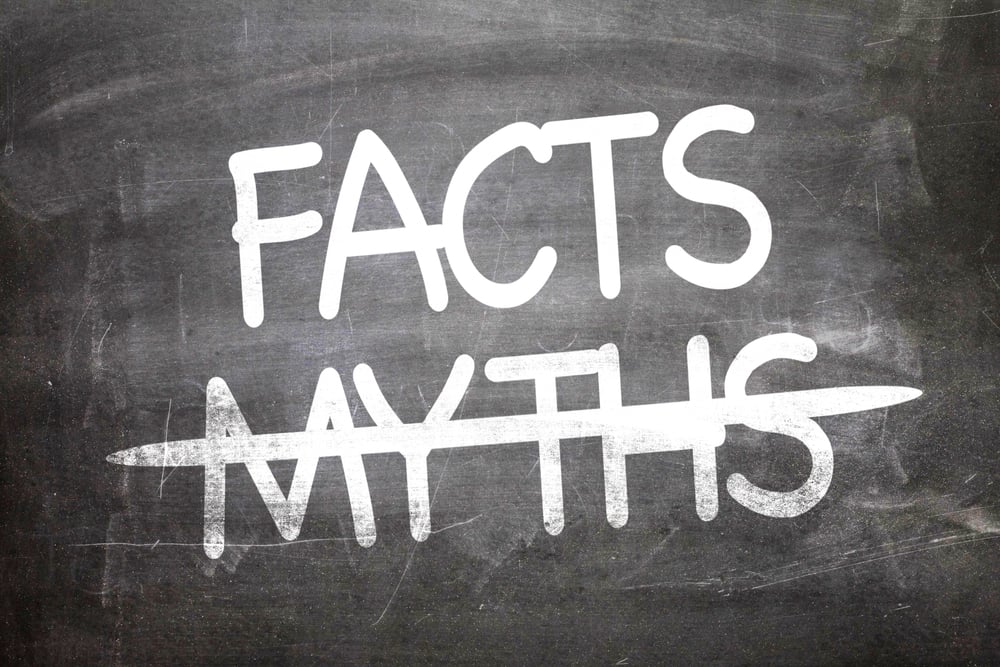
Editor’s Note: This post was originally published in February 2012 and has been updated for accuracy and comprehensiveness.
If you're facing an IRS wage garnishment, you're not alone. A recent study by Northwestern and MIT estimates that 1% of workers, or 1 in 100, may be experiencing a wage garnishment during any given pay period. It's important for you to understand what is true and what is false about wage garnishments so that you can take whatever steps are necessary to stop wage garnishments. If you know the truth, you are one step closer to being able to stop IRS wage garnishments. Here are 11 common myths...
1. My employer has to ask my permission or let me know before garnishing my wages.
FALSE: This is untrue. Once your employer receives a notice that your wages are subject to garnishment, he or she is legally obligated to comply immediately. Your boss does not have to tell you about the garnishment.
2. I won't receive any notice before my wages are garnished.
FALSE: Though the government is not legally required to inform you of an upcoming garnishment, individuals generally receive several notices before collection action is taken, including a final notice with 30 days notice. In most cases, even after you receive a notice of the garnishment, you'll have the opportunity to respond or challenge it in court.
3. I can't stop wage garnishment from happening once I get a final notice.
FALSE: You actually will have 30 days after a final notice is issued to either request a hearing or establishing an arrangement for repayment. If you do not take these steps within the 30 days given, your wages will be garnished. This final notice is only issued after several other notices have been disregarded, so if you want to stop a wage garnishment, make sure you act right away.
4. The government has to leave me enough money to cover my expenses.
FALSE: The government does not have to consider your other financial expenses during the garnishment process. Many people believe that creditors can take all of their wages if a garnishment is ordered. However, federal law sets limits on how much of your paycheck can be garnished, typically capping it at 25% of disposable income or the amount by which weekly income exceeds 30 times the federal minimum wage, whichever is less. So legally, you can be left with less than $200 on each check if you're single and less than $300 if you're married.
5. If my wages are garnished, my employer can fire me.
FALSE (for one garnishment)/TRUE (for multiple garnishments): While it’s true that employers may not be thrilled about processing garnishments, federal law prohibits employers from firing you solely because your wages are being garnished for one debt. However, if you are under multiple garnishments, that protection may not apply. With two garnishments your employer can legally terminate your employment. This also applies if you have more than one debt that is being repaid through garnishment at the same time.
6. Child support and back taxes are the only debts that can be collected through garnishment.
FALSE: While taxes and child support are the most common debts that are collected by wage garnishment, other debts can also be repaid through this procedure. Student loans, past due court fines and civil monetary judgments can all be collected in this manner. Furthermore, while the government can garnish wages for things like taxes and student loans without a court order, private creditors can also garnish wages. However, they generally need to obtain a court judgment first.
7. The government can only garnish my wages for one debt.
FALSE: This is an important myth to clear up, since you can be fired for more than one wage garnishment as mentioned above. If you have multiple past due debts, the government can garnish your wages for all of them at the same time.
8. Filing for bankruptcy won’t stop a garnishment.
FALSE: There is a belief that filing for bankruptcy won’t stop wage garnishments. In fact, an automatic stay is typically put in place when you file for bankruptcy, which can halt most garnishments, at least temporarily.
9. Wage garnishments are permanent.
FALSE: Some people think that once a garnishment starts, it will continue indefinitely. Garnishments generally last until the debt is fully paid off, though they can also be modified or terminated by court order.
10. You can avoid garnishment by changing jobs
FALSE: Some believe that switching jobs will stop a garnishment, but garnishment orders typically follow you to a new employer. Your new employer will be notified, and the garnishment will continue.
11. Wage garnishments are always accurate.
FALSE: Mistakes can happen, and sometimes garnishments are calculated incorrectly or applied to the wrong person. It’s important for you to review any garnishment notice carefully and take action if you believe there is an error.
Wage garnishment poses real financial risks to employed individuals. Understanding the truth about some common wage garnishment myths and consulting a tax resolution specialist can help you decide how to resolve your past debts quickly.




